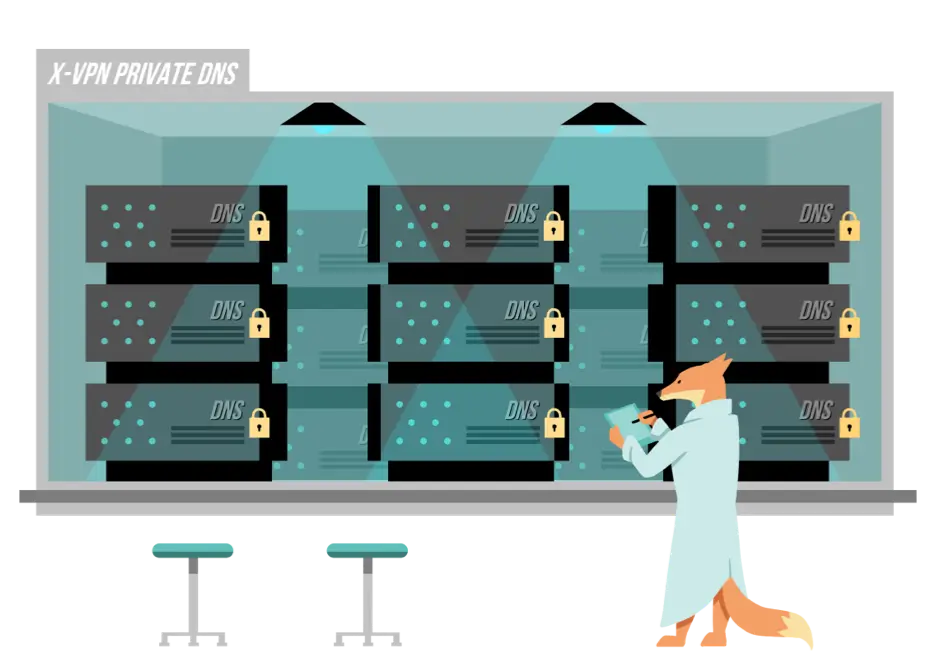How Can You Conduct A DNS Leak Test Using X-VPN?
Ensuring your online privacy and security is vital in today’s digital landscape. One of the most effective ways to do this is by running a DNS leak test, especially when using a reliable VPN service like X-VPN. A DNS leak can compromise your anonymity by revealing your browsing activity to your Internet Service Provider (ISP) or other third parties. Fortunately, with X-VPN, conducting a DNS leak test is straightforward, ensuring your data stays private and secure.
This guide walks you through the process of conducting a DNS leak test using X-VPN, along with tips to maintain a secure browsing experience.
Understanding DNS Leaks and Their Impact on Privacy
Before we dive into the process, let’s understand what a DNS leak is and why it matters. The Domain Name System (DNS) acts as the internet’s phonebook, translating domain names like www.example.com into IP addresses that computers use to load web pages.
When you connect to the internet, your ISP usually handles DNS requests. If you’re using a VPN, these requests are routed through encrypted servers provided by the VPN. A DNS leak occurs when these requests bypass the VPN tunnel and reach your ISP instead. This breach can:
- Expose your browsing activity to your ISP.
- Compromise your anonymity, as your real IP address becomes visible.
- Leave your data vulnerable to tracking or surveillance.
By conducting a DNS leak test, you can confirm whether your VPN is working effectively and protecting your data.
Why Use X-VPN for DNS Leak Protection?
X-VPN is a trusted VPN service designed to prioritize user privacy and security. Here’s why it’s an excellent choice for preventing DNS leaks:
- Strict No-Logs Policy: X-VPN doesn’t track or store your online activities, ensuring true anonymity.
- Robust Encryption: It offers military-grade encryption to protect your data from being intercepted.
- Private DNS Servers: X-VPN uses its own secure DNS servers, reducing the risk of leaks.
- User-Friendly Interface: Its intuitive design makes it easy for anyone to test and manage DNS settings.
Using X-VPN, you can rest assured that your internet connection is shielded against potential vulnerabilities.
Step-by-Step Guide to Conducting a DNS Leak Test Using X-VPN
Here’s how you can perform a DNS leak test with X-VPN in just a few steps:
Step 1: Install and Activate X-VPN
Start by installing X-VPN on your device. It is available for Windows, macOS, iOS, Android, and other platforms. Once installed:
- Open the X-VPN application.
- Log in using your credentials or create a new account if you’re a first-time user.
- Connect to a server of your choice. X-VPN automatically encrypts your connection as soon as it’s activated.
Step 2: Access a DNS Leak Testing Tool
To perform the test, you need an online DNS leak test tool. Many websites offer no-cost and reliable testing services. Some popular options include:
- dnsleaktest.com
- ipleak.net
- whoer.net
Choose any of these platforms or use a similar trusted service.
Step 3: Conduct the DNS Leak Test
Once you’ve connected to X-VPN and opened the testing website, follow these steps:
- Navigate to the DNS leak test tool.
- Look for the Start Test or Run Test button and click it.
- Wait for the test to analyze your connection.
The tool will display a list of DNS servers being used. These results will help you determine if your DNS requests are routed through X-VPN or leaking to your ISP.
Step 4: Interpret the Results
Here’s how to analyze the test results:
- Success: If the displayed DNS servers belong to X-VPN or show locations corresponding to your selected VPN server, your connection is secure.
- Leak Detected: If the servers show your ISP’s name or your real location, a DNS leak is occurring.
In the case of a leak, don’t panic. You can resolve it with a few adjustments (explained below).
How to Fix DNS Leaks While Using X-VPN
If your DNS leak test reveals a problem, there are several steps you can take to secure your connection with X-VPN.
Verify Your X-VPN Settings
Ensure that you’ve configured X-VPN properly:
- Open the X-VPN app.
- Go to the settings menu.
- Enable any options related to DNS leak protection or private DNS servers.
X-VPN is designed to prevent DNS leaks by default, but it’s worth double-checking your settings.
Disable IPv6
Some DNS leaks occur due to IPv6 traffic bypassing the VPN. To address this:
- On Windows: Go to your network adapter settings, find IPv6, and disable it.
- On Mac: Open the Network preferences, select your active connection, and disable IPv6.
X-VPN will still route all IPv4 traffic securely.
Clear Your DNS Cache
Cached DNS records might still contain ISP-related information. To clear your DNS cache:
- On Windows: Open Command Prompt and type ipconfig /flushdns.
- On Mac: Use the terminal command sudo killall -HUP mDNSResponder.
Use X-VPN’s Dedicated DNS Servers
By default, X-VPN uses its private DNS servers to eliminate the risk of leaks. Ensure this setting is active in your X-VPN application.
Benefits of Running Regular DNS Leak Tests with X-VPN
Conducting regular DNS leak tests ensures that your online activity remains private and secure. Here’s why it’s essential:
Maintain Privacy
Running a DNS leak test helps you confirm that X-VPN is effectively hiding your real IP address and DNS requests from your ISP.
Strengthen Security
Testing reveals any potential vulnerabilities in your connection, allowing you to fix them promptly and avoid cyber threats.
Verify VPN Performance
A DNS leak test lets you validate that X-VPN is working as intended, providing peace of mind for sensitive online activities.
Avoid Geo-Restrictions
Leaks can expose your real location, which might prevent access to geo-blocked content. Testing ensures your connection stays within the VPN’s server boundaries.
Why Choose X-VPN for Privacy Protection?
X-VPN stands out among VPN services for its focus on security and performance. Key features that make it ideal for DNS leak prevention include:
- Fast and Reliable Servers: With over 8,000 servers worldwide, X-VPN offers speed and flexibility for secure browsing.
- Cross-Platform Support: Protect all your devices with X-VPN’s compatibility across multiple platforms.
- 24/7 Customer Support: Get assistance anytime if you encounter issues with DNS leaks or other concerns.
By combining these features with regular DNS leak tests, you can enjoy a safer and more private online experience.
Conclusion
Conducting a DNS leak test using X-VPN is a crucial step in maintaining your online privacy and security. With its robust encryption, private DNS servers, and user-friendly design, X-VPN makes it simple to ensure your connection is secure. By following the steps outlined in this guide and running regular tests, you can confidently protect your data from prying eyes and enjoy a truly anonymous browsing experience.
Whether you’re a seasoned VPN user or a beginner, X-VPN has the tools you need to safeguard your online activity. Take the time to perform a DNS leak test today and experience the peace of mind that comes with secure internet usage.











